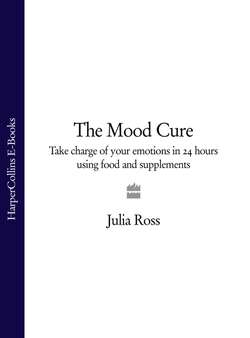Читать книгу The Mood Cure: Take Charge of Your Emotions in 24 Hours Using Food and Supplements - Julia Ross - Страница 34
Is It Your Genes, Gender, or Sex Hormones?
ОглавлениеLike all the other mood chemistry deficiencies that I discuss in this book, a deficiency in serotonin function can be inherited. Through genes that under-program serotonin-producing activity, you can inherit a tendency to be shy, angry, depressed, obsessive, or sleepless. Look around at your family members and chances are you’ll see the same symptoms that you circled in part 1 of the Mood-Type Questionnaire. The good news is that these symptoms can all be eliminated using the nutritional suggestions in this chapter. We used to think of genes as immutable, but now we know that they are capable of changing their messages in response to changing circumstances, such as their nutritional environment.5 Regarding gender and sex hormones: Females simply produce less serotonin than males do, as much as a third less. This is a primary reason why women are almost twice as likely to have mood problems as men, though many men are now becoming serotonin deficient as well. In women, PMS and menopausal mood problems result when levels of sex hormones, notably estrogen, which help program serotonin production in the brain, fall too low. One of our clients suddenly became suicidal and her periods stopped, though her life circumstances were at an all-time high. Neither our nutrients nor her MD’s antidepressants helped till she got a hormone level test and an estrogen patch. In males, depression and anger are common symptoms of andropause (male menopause). But they are tied to lowered testosterone levels and raised estrogen levels and the role of serotonin is unclear. (See the Sex Hormone Tool Kit for more.)
